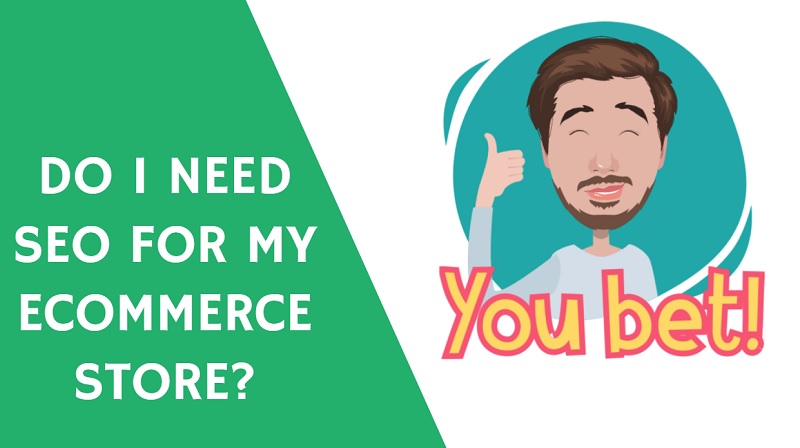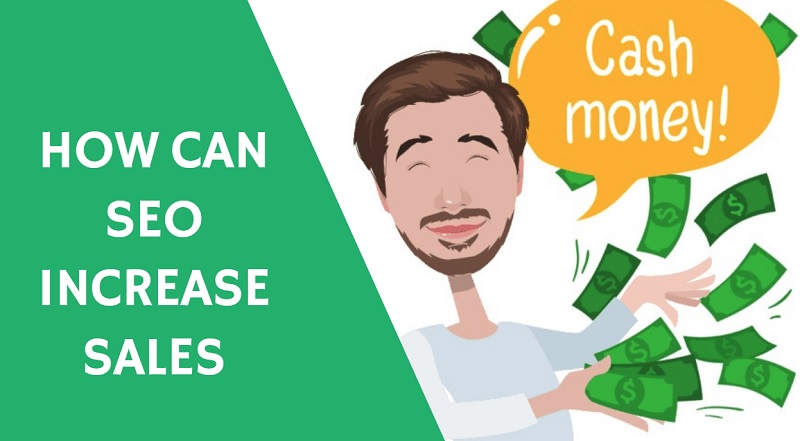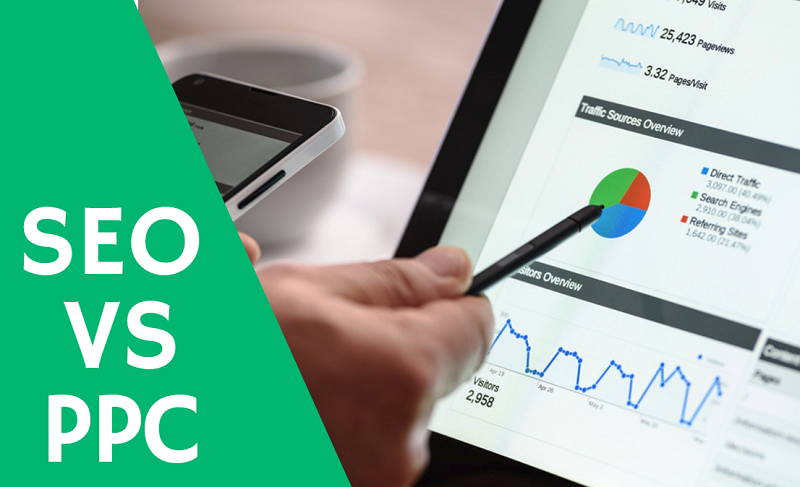
SEO vs PPC: Which Should I Invest In?
When looking at where to devote marketing spend for the best returns, some come to the conclusion that it comes down to SEO vs PPC or rather optimizing your website versus spending on search engine advertising.
Search Engine Optimization vs Pay Per Click Advertising
Both digital marketing methods have attractive qualities and both are proven performers in search engine marketing.
But is one better than the other?
The truth may surprise you.
Pay Per Click Can Get You Faster Results
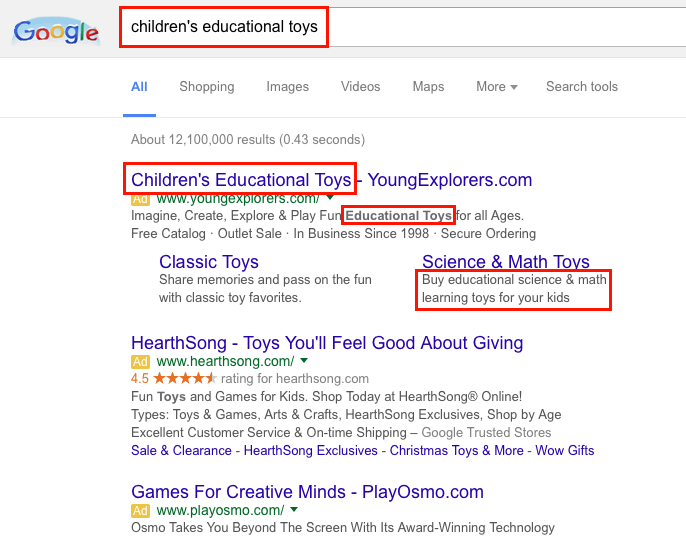
The truth is that Pay Per Click can get you faster results. In fact, they may be able to get you almost overnight results. In fact, you could start an ad campaign in the morning and start seeing results before you leave the office in the afternoon.
That isn’t an exaggeration; you can create an Adwords, Bing Advertising, Yahoo! Advertising or Google Shopping campaign in minutes and start running ads. Those ads will start getting views and can very quickly start getting clicks and actual conversions, whatever a conversion means to your business – which is something we’ll get to in a minute.
Search engine optimization, on the other hand, usually takes a few months to start showing results in terms of improved rankings for keywords, increased traffic as well as site conversions and thus generate a return on the investment in SEO.
But that doesn’t mean you’ll get the right results.
Organic Rankings Dominate Traffic
Numerous studies have confirmed a certain phenomenon when it comes to online behavior, but the gist is that organic rankings – which SEO is focused on – attract more people than paid search ads. One such study by PPC agency Enquisite was published by SEOMoz, one of the biggest authorities (and makers of some great tools) on SEO in the business. What Enquisite found was that there were 8.5 clicks on an organic search result for every individual click on a paid ad.
They also found, however, that a click on a paid search ad was 1.5 times as likely to lead to a conversion as a click on a website in search rankings.
Heat maps generated by other sites and agencies have found a similar effect.
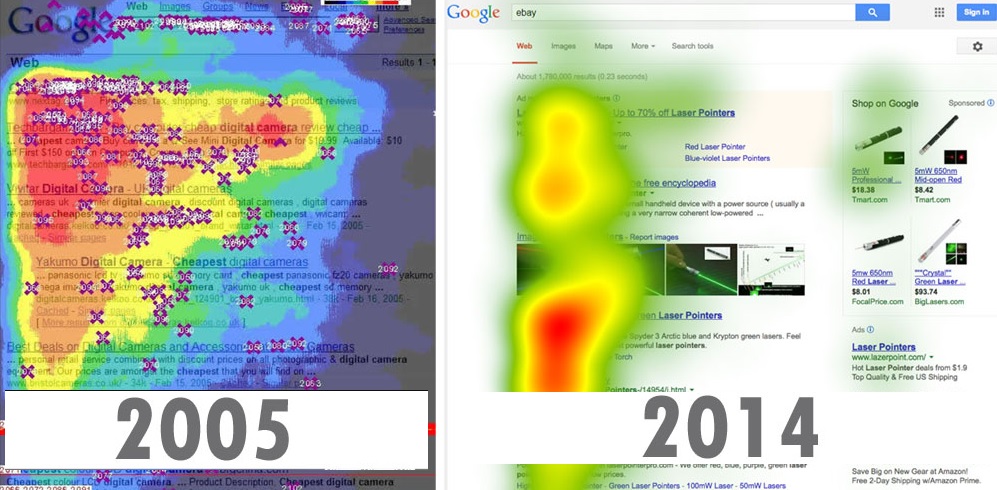
In short: people are more likely to click on an organic search result rather than a paid ad, but are more likely to buy if they click on a paid ad.
Paid Search Ads Can Reap Rewards…When Campaigns Are Run Right
Another thing to consider about paid search ads is that they require a competent manager to yield the results you want.
The thing about paid search is that anyone can do it, but not everyone can do it well. A well-run PPC campaign has good ads, which are run with an appropriate bidding strategy and generate a positive return on investment.
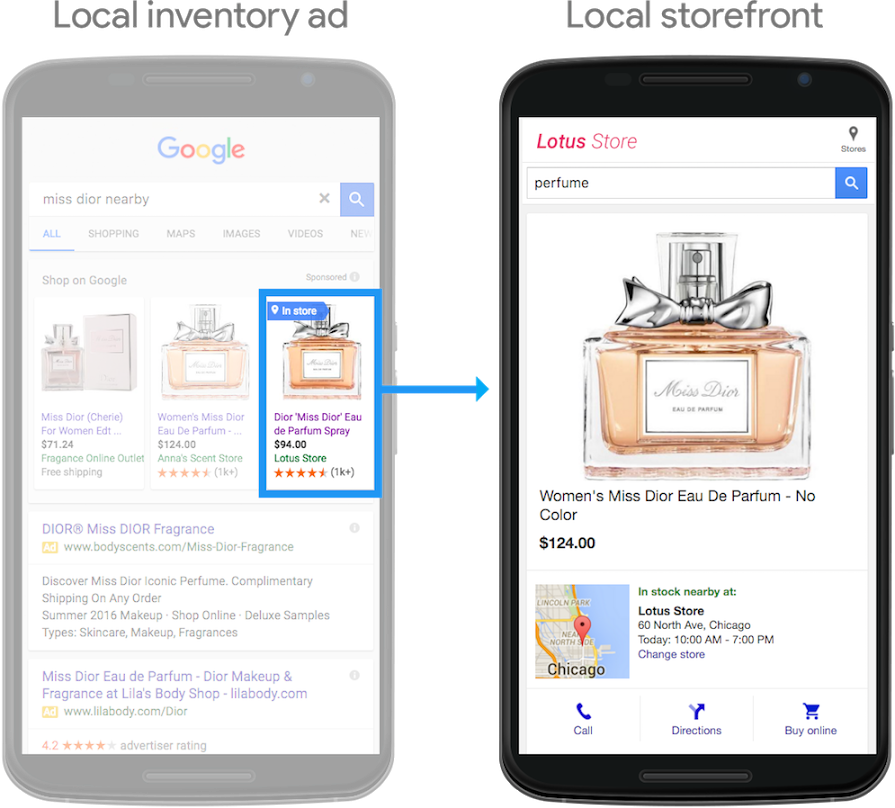
For instance, say you want to run an ad campaign showing visual advertisements for products sold in your stores. In this case, you don’t want text ads that employ a bidding strategy based on clicks – you want people to see those ads, which means a visual ad campaign and bidding based on views.
Also, views, clicks and conversions are all well and good…provided you know how much each conversion is worth to you – and this is what we were getting at earlier.
For instance, an ecommerce site knows what they make on each product sold. Thus, a conversion has a value. However, if your business is selling software or consultant services and a “conversion” is getting a potential customer’s email address (and a LOT of websites run PPC campaigns doing precisely that) there is no value until you actually sell them something, which can be much further down the marketing funnel.
Depending on what you sell, that can make a positive ROI complicated to achieve.
How Do I Determine If SEO Or PPC Is Right For Me?

If trying to settle between SEO or PPC, first understand what you and your business are all about. Some operations are better served by one than the other, and most could benefit from both.
Get an idea for how competitive your segment is. Some verticals are insanely competitive. Personal injury law, for instance, is a very difficult vertical to compete with in terms of PPC; those keywords have such a high cost-per-click that only the largest firms can afford a PPC campaign. A small local firm is going to be far better off investing in local SEO. If the vertical you’re involved in has lower-competition keywords, then PPC may be a sound investment as well.
Do you need results NOW? Then PPC is a better option, but be careful – with PPC, you’ll start spending right away and budgets can balloon easily. SEO can require much more modest investments over the long run, as well as generating increasing returns as rankings improve. PPC campaigns can also be easier to perform A/B tests.
Is your business mostly online or do you rely on foot traffic to your brick-and-mortar store? A mix of both? Local SEO can be quicker to work, though local search ads can sometimes be run on a much lower budget depending on the search terms you’re competing for.
Some businesses, such as some ecommerce sites, use PPC to fill gaps in SEO. Products or keywords that don’t rank well get an ad campaign until they rank highly.
It also helps to bring in some outside consultants. Getting an opinion from seo professionals that deal in either or both can help you get a good picture of which



